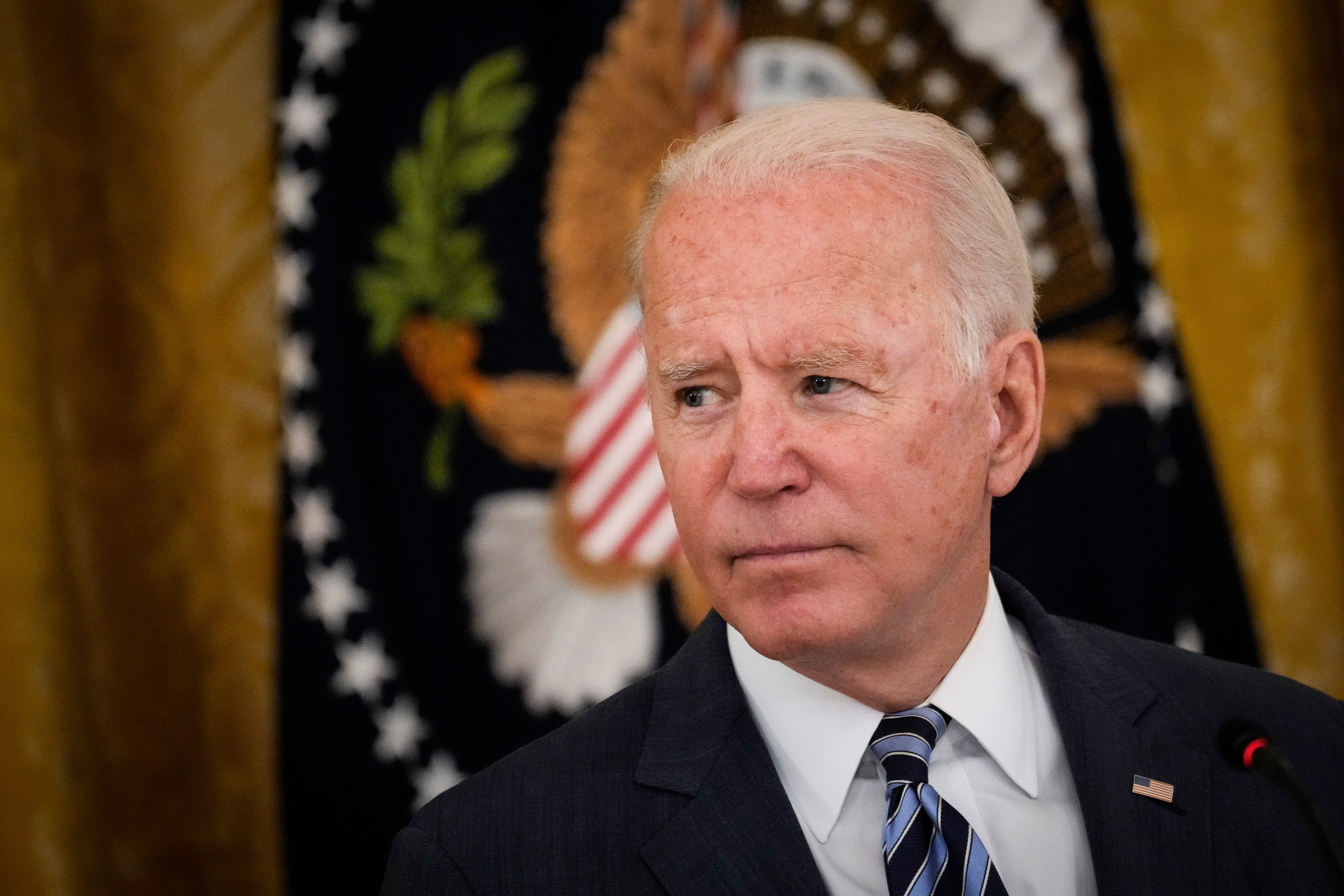Joe Biden must not turn away from his international responsibilities
Editorial: The president needs to show that, although this is the end of ‘dumb’ interventions, the US will continue to fight terrorism and promote human rights

President Joe Biden’s address to mark the end of the United States military presence in Afghanistan certainly felt historic, but it may be that there was less to it than met the eye. One of the most important passages was this one: “This decision about Afghanistan is not just about Afghanistan. It’s about ending an era of major military operations to remake other countries.”
Yet there have been only two of those in the past two decades: in Afghanistan, and in Iraq. It might be said that this era ended when the US-led forces realised that Saddam Hussein’s supposed weapons of mass destruction were a bluff, and Iraq descended into sectarian bloodshed. Since then, the US has refused to deploy ground forces in either Libya or Syria.
The deployment of troops in Afghanistan was maintained only because the policy had failed: the US and its allies had not succeeded in “remaking” the country, but they did not want to pull the troops out because that was likely to precipitate the collapse of the Afghan government and expose that failure.
President Biden deserves credit for his clarity on that point, although it is largely after the event. Before Afghan provincial capitals started to fall to the Taliban like ninepins, he seems to have shared the consensus view that the Afghan army was strong enough both to hold the Taliban at bay and to keep Ashraf Ghani’s government in power after a US withdrawal.
He is right to say that – once the Taliban started to advance – he was left with a simple decision: “Either follow through on the commitment made by the last administration and leave Afghanistan, or say we weren’t leaving and commit another tens of thousands more troops.” He is also right to say that the status quo option, advocated by among others Tony Blair, of maintaining a few thousand troops in the country while sustaining no casualties, was impossible – it had appeared possible only because the Taliban had done a deal with President Trump not to attack US forces, on the understanding that they were leaving.
We believe that, given this choice, President Biden made the right decision. It involved a certain amount of rewriting of his personal history – as his critics have pointed out, there are a number of instances of his suggesting that nation-building was precisely what the US was engaged in in Afghanistan, and that it was succeeding. Now Mr Biden says that the original mission in Afghanistan, of going after al-Qaeda, had “morphed” into “counterinsurgency, nation-building, trying to create a democratic, cohesive and united Afghanistan – something that has never been done over many centuries of Afghans’ history”.
We know that Mr Biden has long tended to that view in private. He opposed President Obama’s troop surge in 2009, for example. But on Tuesday, he finally said the quiet part out loud. It sounded rather like the resolution of a long-running argument within the Obama-Biden partnership. When Mr Obama was a mere state senator in Illinois, he supported the deployment of US forces in Afghanistan in 2001, but he delivered a celebrated speech in October 2002 opposing the planned invasion of Iraq. “I am not opposed to all wars,” he said. “I’m opposed to dumb wars.” Now his former running mate has moved Afghanistan into the category of dumb wars.
After 20 years of trying to make the Afghan intervention work, that is a reasonable view; but Tuesday’s speech left important questions unanswered. President Biden spoke movingly of the cost of military action, and how he was not prepared to risk any more US lives in Afghanistan.
He set out forcefully why he was not prepared to prolong a “dumb” intervention; now he needs to set out, with equal clarity, that this does not mean the US is opposed to all intervention. Above all, that the US will not turn away from its responsibilities in the world: to defend against terrorism, and to promote human rights.



Join our commenting forum
Join thought-provoking conversations, follow other Independent readers and see their replies
Comments